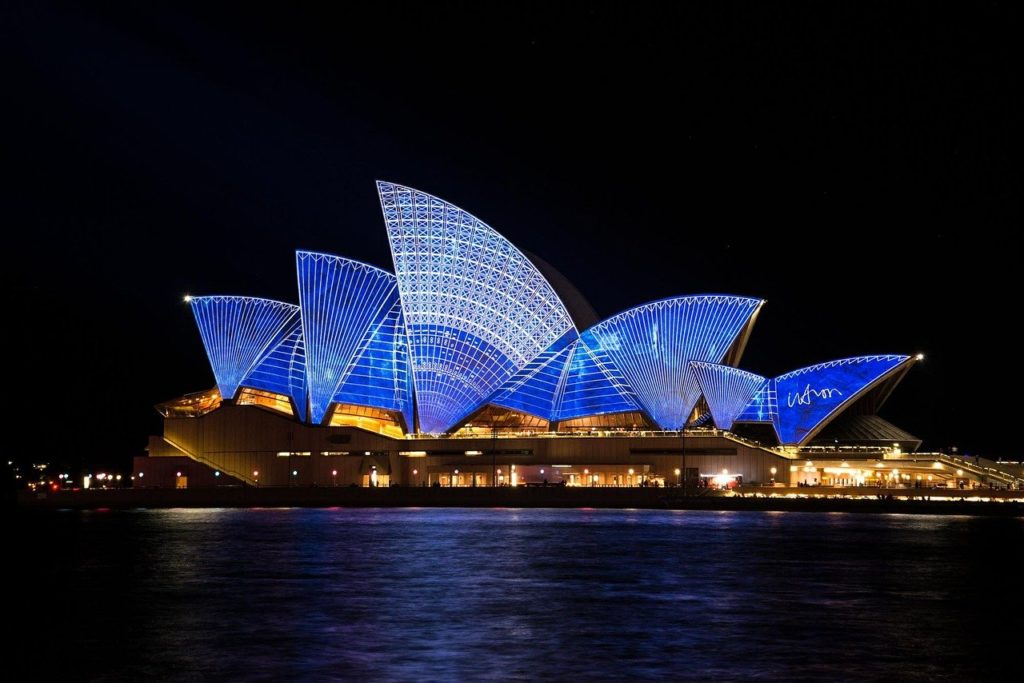From being a tiny land, the crypto space has grown into a whole world. And it’s, indeed, already present worldwide. We’ve passed the $2t mark in market capitalization, BitcoinBitcoin is the first decentralized digital currency. It was created in 2009, by an anonymous founder or group of founders... More is now over $63k, decentralized finance is resounding loud, and Non-fungible tokens (NFTs) are becoming mainstream. All this attention doesn’t come without a price: cryptocurrencyA digital currency running on a blockchain and built with cryptography. Contrary to central-bank issued currency, cryptocurrency issuance rules are... More regulations.
A lot of people, from all countries, are adopting cryptocurrencies for numerous uses and reasons. Store of value, fast remittances, payments, investments, art and collectibles. The governments are paying attention now, and with that attention comes the rules to avoid crimes.

Sometimes, those rules include total bans. They are the few, though. Uses, taxes, and limits are also included. So, let’s take on a quick journey through cryptocurrency regulations worldwide, according to the report by the Law Library of Congress and other several portals.
The Americas
To Chainalysis, North America is “the third-most active region by cryptocurrency volume moved on-chain”. As you may guess, the United States is the country with more crypto users and related companies in this continent. That’s exactly why there’s a regulation fever right now, regarding cryptocurrencies.
They’re legal there, but you’ll have to pay taxes (between 20% and 37%). Besides, the crypto-businesses need an official license to operate, and the authorities are still working on regulations for stablecoins. Initial Coin Offerings (ICOs) are practically banned since it’s necessary an expensive license from the Securities and Exchange Commission (SEC) if the token is considered a security (most of the cases).
Canada is almost the same story. Licensed crypto-businesses, not legal tender, and taxing crypto as commodities. That’d be 50% of the yearly gains. As for the Caribbean and South America, cryptocurrencies are legal in most countries but have established rules in very few of them. They are covered by the Fintech Law in Mexico, which means more licenses for crypto-business and income taxes of around 30%. In Brazil, the tax percentage is between 15% and 22.5%.

Venezuela is a special case, where every single thing related to cryptocurrencies is taxable: from the income and the VAT to the payments and the mining. If the users and miners refuse to register in the official channels, they’d be subject to fines in cryptocurrencies. However, it’s worth mentioning that due to the complex political situation in this country, most crypto users prefer to operate anonymously there.
In the whole continent, only Bolivia has fully banned cryptocurrencies. Ecuador is kind of hostile with it, but they’re legal, despite a past ban. The country members of the Eastern Caribbean Central Bank (ECCB) even already have their own CBDC.
Europe
This continent has, probably, the friendliest attitude towards cryptocurrencies (in regulation terms). Countries like Malta, Estonia, Germany, and Switzerland have established regulatory frames for cryptocurrencies, specially designed to boost innovation and attract foreign investors.
Indeed, Malta is dubbed “The BlockchainBlockchain is a type of database storing an immutable set of data, verifiable to anyone with access to it —through... Island”, Estonia has its own “e-Residency” for companies, Germany it’s considered a tax haven for cryptocurrencies, and Switzerland it’s very known for the Zug Crypto Valley. This is a town where around 800 crypto-companies and organizations have found their tax-free home, and the residents can pay with crypto.

The United Kingdom, on the other hand, has been trying to put some balance between innovation and regulation. Cryptocurrencies are legal and they’ve been actively promoting regulation sandboxes for startups, while companies like exchanges must comply with the usual KYC rules. Nevertheless, the crypto-derivatives for retail customers are banned, and they’re preparing new regulations for stablecoins and CBDCs (just like the whole EU).
Generally, cryptos are legal and popular in the EU, but its exchange for fiat (euro) isn’t allowed without the proper AML measures applied by companies. So far, only the Netherlands has stricter KYC measures.
Africa
Around 54 countries share the mainland of Africa, and there are still some conflict zones. So, as you may imagine, the cryptocurrency regulation here is kind of difficult to track and summarize. This is where most of the countries that have completely banned cryptocurrencies are located. Algeria, Egypt, Morocco, Burundi, Namibia, Libya, and, this year, Nigeria, are on that blacklist. Despite it, some of them still have a lot of active crypto-users.
On the other hand, most of those 54 countries have no specific regulations regarding cryptocurrencies. The warning “no legal tender and trade at your own risk” is very common in the whole continent. However, there are some remarkable cases about the use of cryptocurrencies.
Senegal is one of those cases. They’ve been experimenting with their own CBDC, the eCFA, since 2016. Besides, the Senegalese-American singer, entrepreneur, and philanthropist Aliaune Damala Badara Akon Thiam (better known as Akon) is building there the “Akon City”. This will be a futuristic oasis that will work with its own cryptocurrency, the Akoin token.

Meanwhile, Seychelles has been dubbed the “Fintech Wakanda”. Its government is launching numerous initiatives for innovation, including a regulatory sandbox for crypto-companies. The island-estate Mauritius is following suit. They’re developing their own CBDC, and just launched a legal framework for security tokens.
Asia and the Middle East
Asia is just a little bit smaller than Africa in the number of countries: they’re fifty. From there we have extremes in regulatory matters. Japan is one the most friendlier countries towards cryptocurrencies, while Singapore, Israel, and South Korea are heavily regulated but permissive jurisdictions for crypto.
Russia, China, and India are very prominent in crypto-users, but their laws have leaned more towards the hostile. In Russia, crypto users can’t pay for goods and services with cryptos. Besides, government officials aren’t allowed to own cryptocurrencies; and the punishments for tax avoidance are really expensive.
China is still the great leader in Bitcoin mining, but its cryptocurrency regulations aren’t very friendly. Since 2017, ICOs and cryptocurrency exchanges are banned in the territory. Cryptocurrency is legal but taxable. In India, cryptocurrencies are still legal and widely used, but there’s a proposed ban by the government. Almost the same story for Turkey: legal, but starting this 30 April, won’t be available to pay for goods and services. Indonesia and Vietnam don’t allow payments with cryptocurrencies either.

The outright bans are unusual, though. Oman, Iran, Saudi Arabia, Jordan, Taiwan, Cambodia, Indonesia, and Kuwait are openly hostile against cryptocurrencies. They don’t recommend its use at all, but they haven’t banned them either. On the contrary, Nepal, Qatar, Laos, Iraq, and Bangladesh are applying strict bans. Pakistan is usually known for banning cryptos, but there’s no actual ban and the government is developing proper regulations.
Oceania
It’s not only Australia: there are 14 countries on this continent. Of course, Australia is, indeed, the most prominent in crypto use, along with New Zealand. Their cryptocurrency regulations are very similar. These assets are allowed, but always respecting AML rules. This means that the exchanges need to identify their clients.
Besides, some cryptocurrencies in New Zealand can fall into four categories: debt securities, equity securities, managed investment products, and derivatives. There are different obligations for the issuers according to the type of asset. In Australia, cryptos are treated as property, and exchanges must operate with proper license. They’re not very friendly with privacy coins, though.

The Marshall Islands have already its own cryptocurrency, the Sovereign Coin (SOV). Vanuatu is getting help from Malta to develop its own regulatory framework for cryptocurrencies and ICOs. Samoa only banned the activities related to OneCoin (a very known crypto-scam). In a similar vein, Palau has a temporary halt on crypto-activities until they can develop their own regulations to avoid scams.
As for the rest of the countries, they are, as usual, in a gray area regarding cryptocurrency regulations.
Key takeaways about cryptocurrency regulations
- Cryptocurrency is currently banned in 13 countries. These are Bolivia, Algeria, Egypt, Morocco, Burundi, Namibia, Libya, Nigeria, Nepal, Qatar, Laos, Iraq, and Bangladesh. India is still discussing a ban proposal, and Palau is on stand-by for now.
- The friendlier continent for cryptocurrencies is probably Europe, followed by the Americas. Africa and Asia are usually hostile against them (not all the countries, though).
- The most common rules for using cryptocurrencies in regulated environments are identifying the crypto-users that transact against local money and declaring the respective taxes.
- Most of the countries worldwide still fall into the gray zone regarding cryptocurrencies. This means that they’re not legal but not illegal either.
Don’t let the doubts stopping you! You can legally trade Bitcoin and other tokens on Alfacash! And don’t forget we’re talking about this and a lot of other things on our social media.
Twitter * Telegram * Facebook * Instagram * Youtube * Vkontakte








